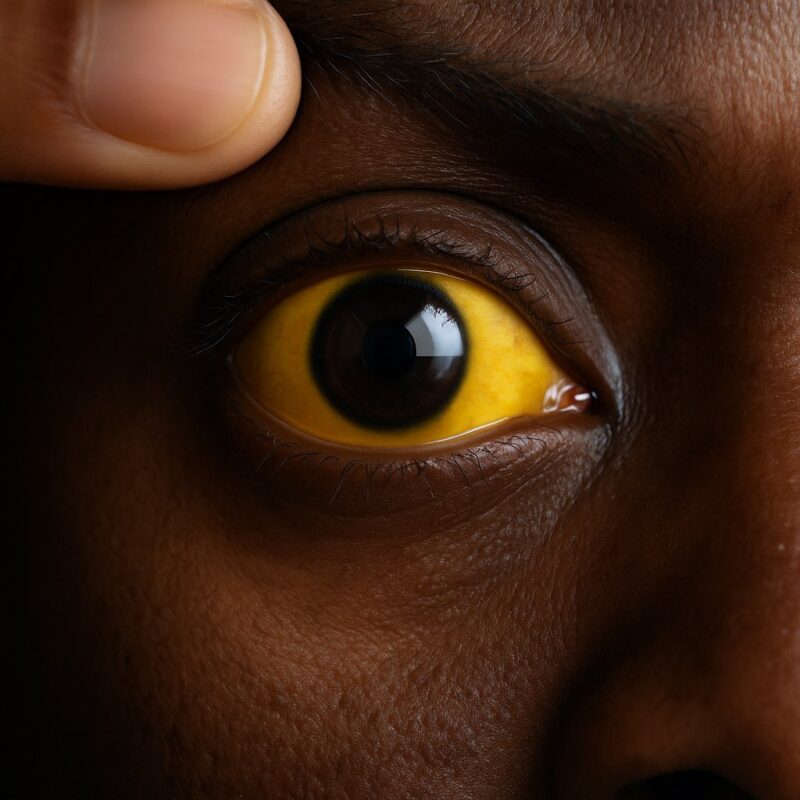Jaundice in adults is primarily caused by conditions affecting the liver, gallbladder, or pancreas, leading to a buildup of bilirubin in the blood.
This excess bilirubin, a yellow pigment, is what causes the characteristic yellowing of the skin and eyes.
Here’s a breakdown of the main causes:
Liver Problems
Hepatitis: Inflammation of the liver, often caused by viruses (like hepatitis A, B, or C), alcohol, or autoimmune disorders.
Alcohol-related liver disease: Excessive alcohol consumption can damage the liver, leading to cirrhosis or other issues.
Cirrhosis: Scarring of the liver, often due to chronic liver disease, can impair its function and cause jaundice.
Liver cancer: Tumors in the liver can obstruct bile flow and lead to jaundice.
Other liver diseases: Conditions like nonalcoholic steatohepatitis (NASH) or autoimmune hepatitis can also cause jaundice.
Bile Duct Obstruction
Gallstones: Blockage of the bile ducts by gallstones can prevent bile (and bilirubin) from reaching the intestines.
Tumors: Tumors in the bile ducts or pancreas can also obstruct bile flow.
Strictures: Narrowing of the bile ducts due to injury or other conditions can also cause obstruction.
Other Causes
Pancreatic cancer: Tumors in the pancreas can compress the bile duct, leading to jaundice.
Certain medications: Some drugs can affect the liver or bile ducts, potentially causing jaundice.
Blood disorders: Conditions like hemolytic anemia, where red blood cells are destroyed too quickly, can increase bilirubin levels and cause jaundice.
Pregnancy: In rare cases, jaundice can occur during pregnancy due to pressure on the bile ducts or other factors.
Hereditary conditions: Some inherited conditions, like Gilbert’s syndrome, can affect how the body processes bilirubin.
In summary, jaundice in adults is usually a sign of an underlying problem with the liver, gallbladder, or bile ducts. It’s crucial to identify the cause to determine the appropriate treatment.
If you experience jaundice, especially if accompanied by other symptoms like abdominal pain, fever, or confusion, seek immediate medical attention.

